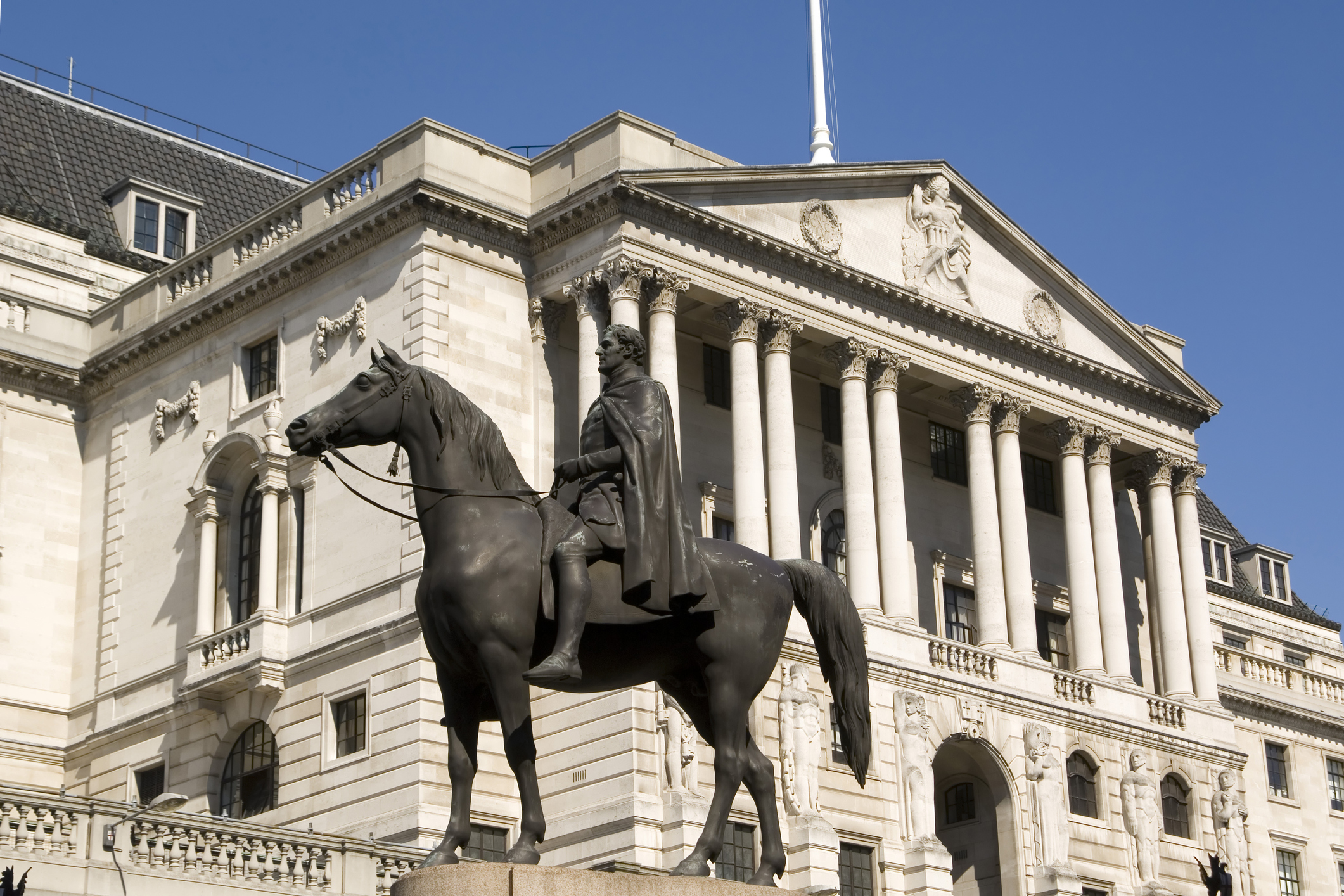ONS: Private sector wages grow faster than expected
The latest figures from the Office for National Statistics show growth in total pay fell 3.1% when adjusted for inflation.


Get the latest financial news, insights and expert analysis from our award-winning MoneyWeek team, to help you understand what really matters when it comes to your finances.
You are now subscribed
Your newsletter sign-up was successful
Want to add more newsletters?

Twice daily
MoneyWeek
Get the latest financial news, insights and expert analysis from our award-winning MoneyWeek team, to help you understand what really matters when it comes to your finances.

Four times a week
Look After My Bills
Sign up to our free money-saving newsletter, filled with the latest news and expert advice to help you find the best tips and deals for managing your bills. Start saving today!
In some slightly positive news for the economy, UK wages accelerated at their fastest rate ever outside of the pandemic in the last quarter of 2022, according to the latest figures from the Office for National Statistics (ONS).
Growth in average total pay, including bonuses, was 5.9% and growth in regular pay, excluding bonuses, was 6.7% in the three months from October to December 2022.
However, pay is still failing to keep pace with inflation.
MoneyWeek
Subscribe to MoneyWeek today and get your first six magazine issues absolutely FREE

Sign up to Money Morning
Don't miss the latest investment and personal finances news, market analysis, plus money-saving tips with our free twice-daily newsletter
Don't miss the latest investment and personal finances news, market analysis, plus money-saving tips with our free twice-daily newsletter
When adjusted for inflation real total and regular pay fell by 3.1% and 2.5% respectively. The latest figures from the ONS show CPI inflation is currently running at 10.5%.
“This is smaller than the record fall in real total pay we saw in February to April 2009 (4.5%), but remains among the largest falls in growth since comparable records began in 2001,” the ONS said.
The figures show “Britain’s workers are seeing their disposable incomes hammered by higher prices – with the jump in wages unlikely to ease in the short-term as those feeling the pinch ask for pay increases to give their purchasing power a fighting chance against inflation,” says Alice Haine, personal finance analyst at investment platform Bestinvest.
The figures put the Bank of England (BoE) in a tricky place. Wage growth in the private sector could prompt businesses to continue to hike prices to offset costs, pushing inflation higher still. That could force it to hike interest rates much further in the coming months.
The central bank raised interest rates to 4% when it last met in February, the tenth consecutive increase.
It’s widely expected interest rates will rise again when the Monetary Policy Committee (MPC) meets on 23 March. Most analysts expect the BoE will hike the base rate by 0.25%, but this data might force the MPC to move faster.
Unemployment rate stays the same
There was a small increase in the unemployment rate of 0.1% between October and December 2022, taking the rate to 3.7%, although this was mainly driven by an increase in number of people coming back into the workforce and looking for employment.
Economic inactivity, which measures the amount of people not looking for work, decreased 0.2% points to 21.4% for the quarter.
Still, this number remains well above pre-pandemic figures, driven by “early retirement, high long-term sickness rates, lengthy NHS waiting lists and the high cost of childcare”, says Haine.
Between the third and fourth quarters of 2022 the number of people classed as economically inactive dropped by a record amount as more people joined the work force.
Elsewhere, the estimated number of job vacancies fell 76,000 on the quarter to 1,134,000, reflecting “uncertainty across industries, as survey respondents continue to cite economic pressures as a factor in holding back on recruitment”, the ONS said.
Public sector wage growth lags behind
Average regular pay growth for the private sector was 7.3%, but the public sector saw growth of 4.2%.
The discrepancy was the driver for a wave of industrial action at the end of last year that has continued into 2023.
“As pay packets fail to keep pace with rising living costs and the gap between public and private employers' wage expectations widens, thousands of public sector workers have resorted to industrial action in recent months – something that has a detrimental effect on productivity with 843,000 working days lost to strikes in December – the highest level since the aftermath of the financial crisis,” says Haine.
Private sector employers are expected to raise salaries by 5% in 2023, according to the Chartered Institute of Personnel Development, “as they strive to offer attractive pay deals to fill vacancies and prevent existing staff from jumping ship”, says Haine.
What’s next for the labour market?
The UK just about avoided a recession in 2022 despite a 0.5% fall in GDP in December. But the Bank of England is still expecting a recession in 2023, and the International Monetary Fund expects the UK to be the only G7 economy to contract in the year ahead.
“The UK avoided a recession by the skin of its teeth at the end of last year, but the road ahead is still very uncertain,” says Haine.
“The strain is already evident with redundancies on the rise and British companies easing back on recruitment and hiring intentions now at their lowest levels in more than a year, as the high inflation and interest rate environment drives threats of a recession.”
Get the latest financial news, insights and expert analysis from our award-winning MoneyWeek team, to help you understand what really matters when it comes to your finances.
Nic studied for a BA in journalism at Cardiff University, and has an MA in magazine journalism from City University. She has previously worked for MoneyWeek.
-
 Should you buy an active ETF?
Should you buy an active ETF?ETFs are often mischaracterised as passive products, but they can be a convenient way to add active management to your portfolio
-
 Power up your pension before 5 April – easy ways to save before the tax year end
Power up your pension before 5 April – easy ways to save before the tax year endWith the end of the tax year looming, pension savers currently have a window to review and maximise what’s going into their retirement funds – we look at how
-
 How have central banks evolved in the last century – and are they still fit for purpose?
How have central banks evolved in the last century – and are they still fit for purpose?The rise to power and dominance of the central banks has been a key theme in MoneyWeek in its 25 years. Has their rule been benign?
-
 'Governments are launching an assault on the independence of central banks'
'Governments are launching an assault on the independence of central banks'Opinion Say goodbye to the era of central bank orthodoxy and hello to the new era of central bank dependency, says Jeremy McKeown
-
 Why investors can no longer trust traditional statistical indicators
Why investors can no longer trust traditional statistical indicatorsOpinion The statistical indicators and data investors have relied on for decades are no longer fit for purpose. It's time to move on, says Helen Thomas
-
 The Bank of England can’t afford to hike interest rates again
The Bank of England can’t afford to hike interest rates againWith inflation falling, the cost of borrowing rising and the economy heading into an election year, the Bank of England can’t afford to increase interest rates again.
-
 Interest rates held at 5.25% again
Interest rates held at 5.25% againThe Bank of England has kept rates at 5.25% again, in a widely anticipated move. We look at what it means for your money - and what the Bank’s next move could be
-
 Bank of England holds interest rates at 5.25%
Bank of England holds interest rates at 5.25%The Bank has kept rates at 5.25%, ending its run of 14 consecutive increases. We look at what it means for your money - and what the Bank’s next move could be
-
 UK inflation slumps to 6.7% in August
UK inflation slumps to 6.7% in AugustThe latest data shows inflation slowed faster than expected in August, a welcome relief for consumers and the Bank of England
-
 UK wages grow at a record pace
UK wages grow at a record paceThe latest UK wages data will add pressure on the BoE to push interest rates even higher.
